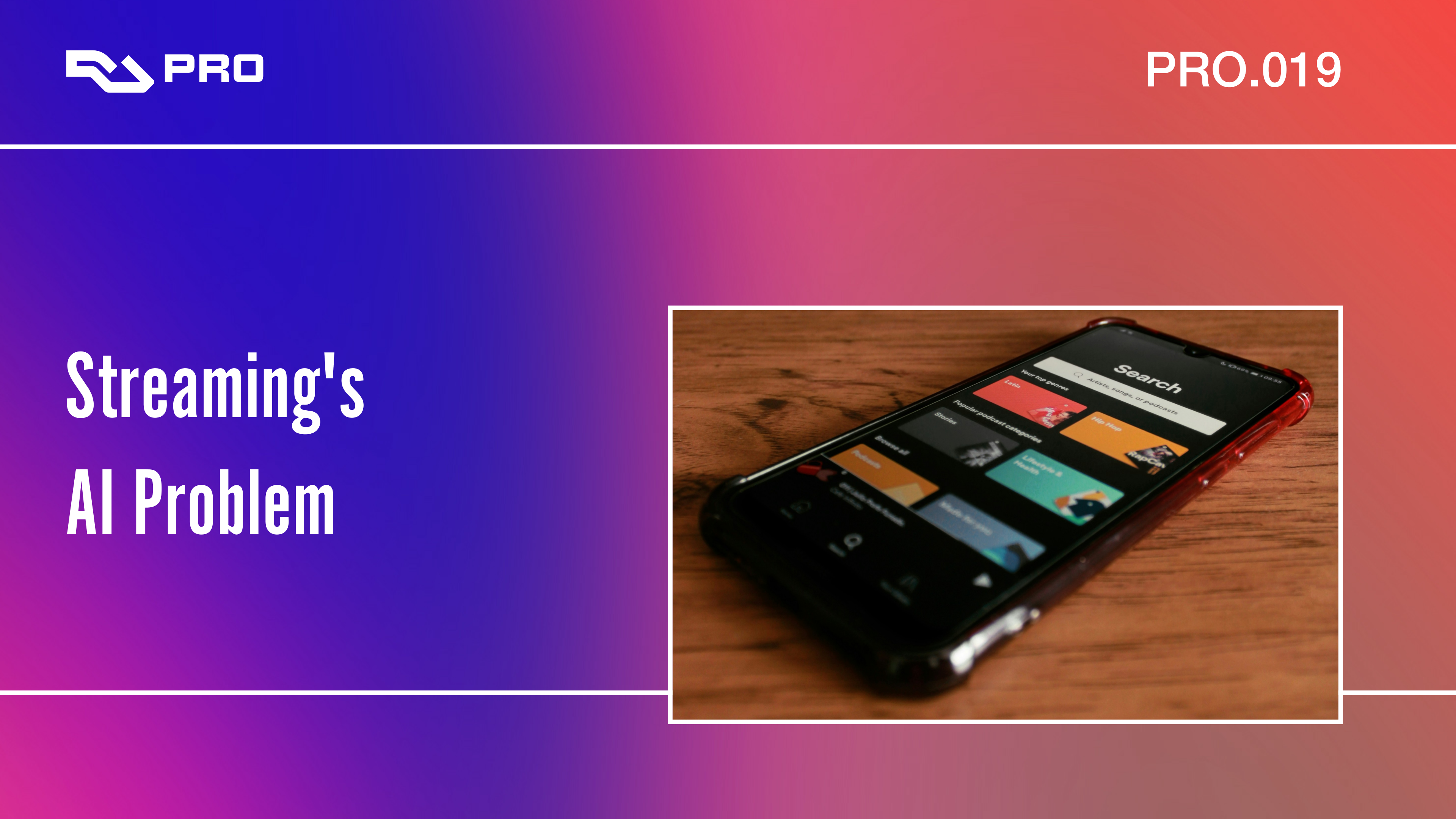Published
Thu, Apr 4, 2024, 08:00
- Will streaming platforms soon be flooded with AI-made music?

Welcome to the RA Pro Newsletter: a bite-sized look at the trends and themes impacting businesses in the electronic music industry. Sign up to the full newsletter to get early access to each release and read all archived editions.
In a recent and now-viral social media tirade, James Blake furiously sounded off on the age-old cornerstone of music industry criticism: the state of streaming. His argument was largely unsurprising–shocker, the streaming business goes against artist interests–and while many dismissed his broadsides as a marketing ploy to introduce his new direct-to-artist subscription service, one rant surfaced an important, under-the-radar discussion point.
A common complaint against streaming is that it devalues music, treating it like digital content that lives off plays and followers rather than as a nuanced art form. Blake seems to be saying that the business model of major DSPs rewards content creation and thus paves the way for a proliferation of AI-made music that's easy and cheap to produce thanks to the abundance of accessible software. Chillout and lo-fi playlists, in particular, are fast becoming ground zero for AI music, which makes sense given their focus on repetitive compositions–common traits of AI-generated tunes. Sound wellness app Endel has been leading the way in this regard, working with Grimes, Plastikman and Blake himself on custom soundscapes featuring AI tech.
Text-to-music generators like suno.ai are already used on DSP playlists, the French artist and tech enthusiast Agoria told Resident Advisor. These platforms "are capable of populating major genre playlists in minutes." He believes this kind of automatic music, generated through trained AI models, should be rendered obsolete. On the other hand, "tools like bronze.ai could aid in rediscovering or paying closer attention to musical details or fostering spontaneous creativity," he noted. Bronze, which has worked with Disclosure, Arca and Jai Paul, uses stems from an artist's song alongside AI to generate new versions of that track.
Streaming is a volume game, so in order for AI music to flood DSPs, it must be able to attract and retain users. The popularity of a track typically depends on the quality of the music and context behind the artist–the novelty factor could boost AI music's streaming numbers but all will depend on how engaging the tracks actually are.
Perspectives on the ground
Ed Newton-Rex—ex-VP of audio at Stability AI, a former product director for TikTok in Europe and former product director at Snapchat—is a leading expert on generative AI and social media. He now runs the non-profit Fairly Trained, which offers a certification to AI companies that train their models using consensual data from creators. He doesn't believe AI-made music will take over streaming anytime soon.
"It's not in their interests for their platforms to become 99 percent AI music," he explained. "For one thing, AI music tends toward mediocrity. For another, there is likely to be significant public backlash to generative AI. DSPs that let themselves be flooded with AI music will end up with a worse user experience, and a lot of very angry users. I expect the major DSPs will insist that AI music is labelled as such, and will penalise this music in recommendations and give users controls to avoid it." However, "this will be a hard problem to solve because whether something is 'AI music' isn't binary, it's a spectrum," he warned. As a result, the amount of AI music published on DSPs without proper labelling could skyrocket, he said.
"AI music flooding DSPs is as inevitable as AI blogs, comments, books, research papers and other content flooding the internet, which is already happening," added Mark Williamson, Spotify's former global head of artist and industry partnerships. "This isn't just a music problem; this is a global information problem." Williamson is the CEO and cofounder of ROSTR, a start-up that calls itself a modern music industry directory, tracking relationships between artists, labels, agencies and management companies.
More AI music on DSPs is seriously bad news for artists and labels, as James Blake suggested. "In the short term, the biggest risk is that all of this noise just makes it even harder for the DSPs to curate and for artists to get heard," Williamson continued. "This AI music isn't really good enough yet that people are intentionally giving it share at scale. But just like the flood of AI content has made shopping Amazon harder, the flood of AI content will make discovering music harder, which hurts real artists. Above-average artists are already competing with many millions of average and below-average artists. Now, they're going to be competing with potentially billions of below-average and maybe even average AI artists."
"There's already evidence that people are switching their listening time from DSPs to AI music generators," Newton-Rex warned. "Every minute spent listening to AI music instead of human-composed music is more lost revenue for musicians and rights holders." That's because so many AI music companies use musicians' work without permission or payment, he described. "When listening time goes to these companies, no revenue flows through to musicians, despite the AI models being built on their music. Things look better for musicians and rights holders when AI companies licence the music they train on, since licensing gives rights holders a chance to set the commercial terms."
In case you missed it: important industry news
• UK industry expert proposes £1 concert ticket levy to save grassroots music
• Tennessee becomes the first state to protect musicians and other artists against AI
• The awful AI music that might take over the world
• AI-generated blues misses a human touch
• Bertelsmann would consider deal to expand music business BMG, says chief
